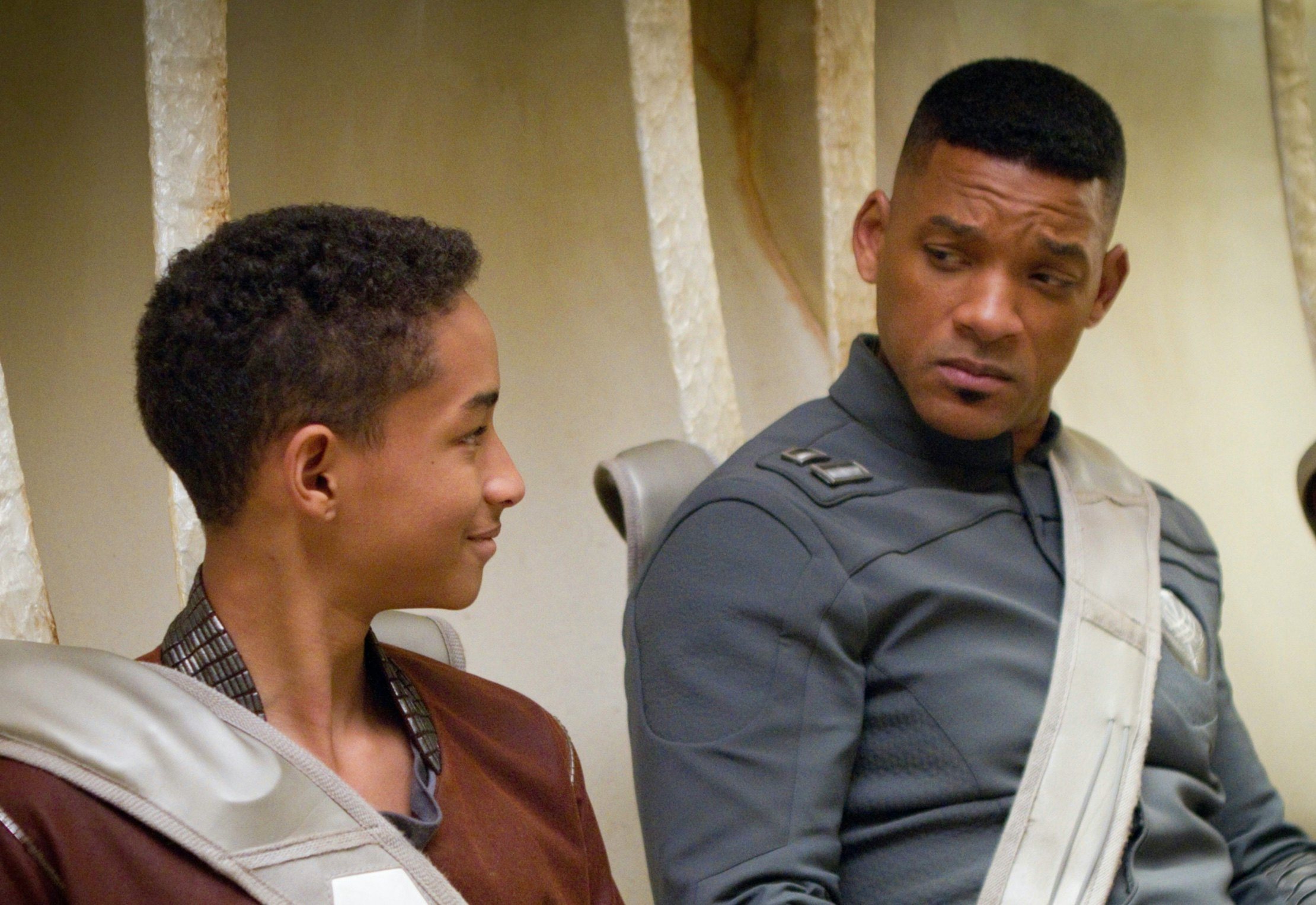
In space, no one can smell your fear. Except in the 2013 film After Earth, where the entire premise rests on the idea that a specific race of aliens can sense human fear, and thus dominate us unless we suppress our emotions. In 2013, the Will Smith-led sci-fi movie, which was directed by M. Night Shyamalan and just hit Netflix, opened to reviews that threw “worst sci-fi movie” ever made around a lot. With a meager 12 percent rating on Rotten Tomatoes, is After Earth worth your time? Yes! 10 years later, this flop is worth another look for two reasons: it’s the rare Shyamalan movie lacking a twist, and it’s a non-franchise sci-fi movie containing a few decent ideas that could have been thrilling in an alternate dimension.
To be clear, After Earth is not secretly a great movie. It’s riddled with cliches while floating a premise that feels like Scientology propaganda. In fact, the central thesis — that humans need to overcome fear — is a major tenant of Scientology, a fact critics pointed out at the time. That said, the fear of fear is a trope found in all sorts of science fiction, much of it good. Dune tells us “fear is the mind-killer,” while Star Wars famously posits that “fear is the path to the Dark Side.” Neither Frank Herbert nor George Lucas were Scientologists, so putting the idea of fear through a sci-fi ringer isn’t necessarily suspicious.
The problem with the film’s central conceit — that humans must eliminate fear to fight these aliens — is that it’s not presented consistently. In a voiceover from Kitai Raige (Jaden Smith), we learn that “ghosting” is the ability certain humans have to suppress emotions so well the aliens can’t detect them with their special emotion-sniffing power. Kitai Raige’s dad, Cypher Raige (Will Smith), is the best “ghost” around. Setting aside the fact that Will Smith is acting with his actual son here, After Earth’s problems are all connected to Raige Sr. Will Smith doesn’t play Cypher Raige as some kind of Vulcan-like stoic who’s purged their emotions through years of mental discipline. He just comes across like a perpetually cranky drill sergeant. Don’t want the aliens to smell your fear? Well, act like a jerk all the time!
In other films, these would be minor nitpicks. In Star Wars, Star Trek, and Dune, we often look the other way with narrative inconsistencies regarding the sci-fi suppression of emotion. In a sense, the concept is as silly as the moment in Ghostbusters when everyone isn’t supposed to think of anything and Ray accidentally thinks of the Stay Puft Marshmallow Man. It’s hard not to feel anything, even a little bit of fear. We accept this kind of thinking elsewhere in sci-fi, and in a better version of this movie, no one would care that After Earth’s premise is flawed.
What After Earth has going for it is that it looks interesting, the world-building isn’t trying to create a franchise or emulate a popular aesthetic, and there are no major twists. Shyamalan’s direction is very straightforward, and the movie is almost old-fashioned in that it’s not trying to trick you. The only mysteries here are whether Cypher can figure out how to get along with his son in a dangerous situation, and if Kitai can master his dad’s powers. The stakes aren’t massive, and in some moments the movie even feels quiet and understated.

These are the good things about After Earth, and in terms of mainstream sci-fi movies from big studios, they’re almost unheard of 10 years later. It’s hard to imagine the upcoming Rebel Moon will be understated or quiet, while the rest of mainstream sci-fi tends to be dominated by existing franchises. If After Earth was made in 2023, it would probably be a TV series more in line with Raised By Wolves. And, if you squint, that’s what it should have been. Had some of the world-building been forced into a series format, a lot of what doesn’t make sense about After Earth could have been explored, and perhaps made uniquely interesting.
Buried in the overly earnest mess of After Earth is a unique and refreshingly direct sci-fi story. If you’re looking for a movie that will blow you away, this is not it. But if you’re trying to unlock the secret of why sci-fi tropes only sometimes click on screen, After Earth is one of the greatest case studies ever.
After Earth is now on Netflix.







